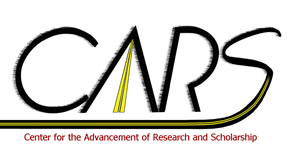Poster: The Conceptions of Learning to Teach in a Constructivist Environment
Location
Moakley Atrium
Start Time
15-5-2013 4:00 PM
End Time
15-5-2013 5:00 PM
Description
A constructivist approach to teaching and learning in teacher education has been widely accepted by many researchers in the field (Richardson, 1997). While multiple studies have described physical education teaching based on constructivist learning (Ennis, 1991; Chen 2001; Chen & Cohen, 2001; Chen & Rovegno, 2000; Dyson, 2002) and others have addressed teachers learning to teach K-12 physical education employing constructivist perspectives (McCaughtry & Rovegno, 2003; Rovegno, 1991), little is known about constructivist environments within physical education teacher education (PETE). The purpose of this study was to examine PETE teacher candidates’ conceptions of learning to teach through the use of constructivist principles. Participants included eleven (6 males; 5 females) of 13 members of an intact 16-week, field based, methods class. Data were collected using semi-structured focus group interviews and artifacts. Four themes were identified as facilitation of learning; relationships, feedback, time, and active learning.
Poster: The Conceptions of Learning to Teach in a Constructivist Environment
Moakley Atrium
A constructivist approach to teaching and learning in teacher education has been widely accepted by many researchers in the field (Richardson, 1997). While multiple studies have described physical education teaching based on constructivist learning (Ennis, 1991; Chen 2001; Chen & Cohen, 2001; Chen & Rovegno, 2000; Dyson, 2002) and others have addressed teachers learning to teach K-12 physical education employing constructivist perspectives (McCaughtry & Rovegno, 2003; Rovegno, 1991), little is known about constructivist environments within physical education teacher education (PETE). The purpose of this study was to examine PETE teacher candidates’ conceptions of learning to teach through the use of constructivist principles. Participants included eleven (6 males; 5 females) of 13 members of an intact 16-week, field based, methods class. Data were collected using semi-structured focus group interviews and artifacts. Four themes were identified as facilitation of learning; relationships, feedback, time, and active learning.
